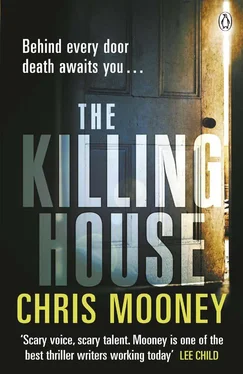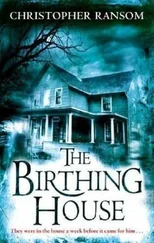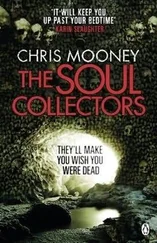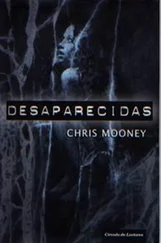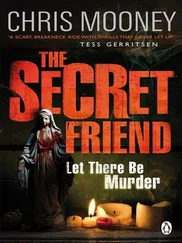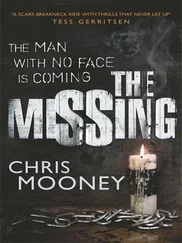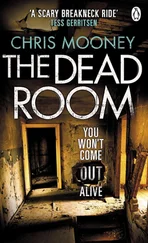Chris Mooney - The Killing House
Здесь есть возможность читать онлайн «Chris Mooney - The Killing House» весь текст электронной книги совершенно бесплатно (целиком полную версию без сокращений). В некоторых случаях можно слушать аудио, скачать через торрент в формате fb2 и присутствует краткое содержание. Жанр: Триллер, на английском языке. Описание произведения, (предисловие) а так же отзывы посетителей доступны на портале библиотеки ЛибКат.
- Название:The Killing House
- Автор:
- Жанр:
- Год:неизвестен
- ISBN:нет данных
- Рейтинг книги:5 / 5. Голосов: 1
-
Избранное:Добавить в избранное
- Отзывы:
-
Ваша оценка:
- 100
- 1
- 2
- 3
- 4
- 5
The Killing House: краткое содержание, описание и аннотация
Предлагаем к чтению аннотацию, описание, краткое содержание или предисловие (зависит от того, что написал сам автор книги «The Killing House»). Если вы не нашли необходимую информацию о книге — напишите в комментариях, мы постараемся отыскать её.
The Killing House — читать онлайн бесплатно полную книгу (весь текст) целиком
Ниже представлен текст книги, разбитый по страницам. Система сохранения места последней прочитанной страницы, позволяет с удобством читать онлайн бесплатно книгу «The Killing House», без необходимости каждый раз заново искать на чём Вы остановились. Поставьте закладку, и сможете в любой момент перейти на страницу, на которой закончили чтение.
Интервал:
Закладка:
Marie returned to the oven. The bone fragments had cooled. She picked up a long, metal broom with a brush made of high-carbon stainless-steel bristles and hummed a Spanish lullaby as she carefully swept Rico into a steel catcher at the front of the crematorium door. She switched to a normal paintbrush with a wide head to collect the finer fragments and then transferred everything into a crematorium pan.
Marie inspected the debris and, finding no metal, carefully dumped the fragments into a special processor. As the motorized blades pulverized Rico’s bones to ash, she decided to honour Rico with a 1.5-carat, emerald-cut red stone. The $25,000 diamond would be the centrepiece of her necklace.
23
Ali Karim’s plane touched down at an airport located near the southeastern corner of Alabama. Established in 1941 by the US Army Corps to train additional airport personnel for the Second World War, the Dothan Regional Airport was still used primarily by the military, but it also serviced one major commercial airline carrier and accepted all types of general aviation aircraft.
Airport operations were conducted inside a wide, ranch-shaped building with a brick face and a sloping grey roof. The interior was immaculately clean and accommodated a fair number of local retail and dining options. Fletcher stepped up to the Hertz counter and presented Robert Pepin’s driver’s licence and credit card to the clerk. Half an hour later he was seated behind the wheel of his rental — a Ford Explorer with its own GPS system. The town of Dunbar was an hour’s drive.
He had visited Alabama once, when the FBI’s Birmingham field office had asked the Bureau’s Behavioral Analysis Unit for assistance in the case of a fifteen-year-old girl who had been abducted from her bike. While reviewing the case details and working up a profile to give to local law enforcement, the girl’s mother had confessed to murdering her only child. Her new husband had been lavishing too much attention on his comely stepdaughter. The mother had killed her daughter out of jealousy.
Birmingham acted as the state’s cultural capital, and was stocked with historic buildings, museums, botanical gardens, art galleries, ballet companies and symphony orchestras; the town of Dunbar, however, consisted of small, practical homes sprinkled between rambling meadows and dense forests. Despite the bright sunshine, the area had a haunted feel, as though the homes had been deserted. He passed no cars and saw no people.
Sacred Ashes, the company that specialized in adding cremated remains to shotgun and firearm cartridges, operated out of a brown-painted ranch with a sagging front porch. It was nearly identical in size and structure to the handful of ramshackle homes built haphazardly along Old Gracey Road, a long, meandering street carved through a seemingly never-ending maze of brown fields populated with ancient longleaf pines and spruces. The only advertisement for the company came in the form of adhesive gold letters placed on a new black mailbox mounted near the front door. The house contained no garage or carport. A pair of dirt roads wrapped around each side of the house and ended in an ample and currently empty dirt lot covered by a mat of brown pine needles.
Fletcher parked his Ford Escape rental on a trail in the woods where it wouldn’t be seen from the main road. He collected the backpack holding his equipment and set off to find a place to conduct surveillance.
The edge of the woods led into a wide-open field of tall yellow grass that bent and swayed in the cooling afternoon wind. Hidden behind a tree, Fletcher unzipped the backpack and pulled out a laser mike. His broken ribs prevented him from lying on his stomach. Wearing a pair of headphones, he sat near an area of thick brush and aimed the laser mike at the windows.
Twenty minutes passed, without any sound or movement of any kind.
Then a phone rang inside the house. The company’s answering machine picked up, and a woman with a thick, backwoods accent left a message. She had two sons, and, while both were avid outdoorsmen, they used different firearms. The mother was hoping it was possible to have their daddy’s ashes split between shotgun shells and pistol rounds. She wanted to negotiate a price.
Fletcher pulled out his field glasses and studied the back of the house. When he finished, he took out his phone and called Karim, who was waiting inside the plane and helping his assistant, M, as in the letter, research information on Sacred Ashes.
The company had been open for less than a year, Karim said. The two men who had started it had taken out a second mortgage to purchase the 1,200-square-foot ranch home in Dunbar. They had also taken out a sizeable personal loan to buy the ammo supplies and equipment needed to modify gun cartridges. In the light of their debt, the owners had elected not to quit their steady, full-time jobs in Midland City, where both men also lived.
Fletcher thought about the house. At the moment it was empty. And Midland City was over an hour’s drive from Dunbar. He wondered if the two owners had elected to take Sunday afternoon off to spend time with their wives or girlfriends.
M, Karim said, had uncovered some useful information concerning the house itself: there was no alarm system, as far as she could tell.
But that doesn’t preclude the existence of one — or some other type of security, Fletcher thought. He thanked Karim, hung up and powered off his phone. Field glasses in hand, he searched the area. Assured that he was alone, Fletcher stood and tucked the field glasses into his jacket pocket. Then he tied his backpack to the top of a tree limb. There was no need to bring it with him. The tools he needed were packed inside the tactical belt hidden underneath the bottom edges of his windbreaker. He moved out of his hiding spot and jogged across the field.
Fletcher reached the back door, his broken ribs throbbing. He unzipped his jacket and removed a device that looked like an ordinary smartphone from his tactical belt and moved it around the door’s edges. The light remained green, the signal that the house did not contain a security system. He put the device away and snapped on a pair of latex gloves. Using standard lock picks, he opened the door.
Since the house had no basement, the formal living area, shaded by cheap plastic blinds, had been transformed into a workshop. He found the usual assortment of equipment and tools needed to modify wildcat cartridges, all of which were neatly organized according to calibre on a series of metal shelving units resting against the walls. He opened a random box of 9-mm rounds and removed a bullet.
The cartridge was an identical match to the empty one he’d collected in Colorado.
There was one other interesting item in the room: a folding table holding FedEx and UPS mailing envelopes and small cardboard boxes. Two were open. They both contained human ashes sealed inside clear Ziploc bags.
Tucked underneath each box and envelope was a set of three stapled sheets. The first page was a computer form generated by the company website. It contained the requester’s contact information, the decedent’s information, type of ammo requested, packing and shipping preferences and a box for additional comments. The second sheet was a signed contract agreeing to the type of ammo requested and cost; the third, a copy of the deceased’s death certificate.
Fletcher examined the other stapled sheets. Same three pages, same order forms. The buyers were all from Southern states with little or no gun or ammo restrictions. Since the United States Postal Service prohibited the mailing of ammunition or any other item it considered to be ‘ORM-D’, or ‘Other Regulated Materials for Domestic Transport Only’, shipping services for Sacred Ashes were performed by UPS and FedEx, as the two private transport companies had no restrictions on shipping firearms or ammunition, provided it complied with the state’s particular gun laws.
Читать дальшеИнтервал:
Закладка:
Похожие книги на «The Killing House»
Представляем Вашему вниманию похожие книги на «The Killing House» списком для выбора. Мы отобрали схожую по названию и смыслу литературу в надежде предоставить читателям больше вариантов отыскать новые, интересные, ещё непрочитанные произведения.
Обсуждение, отзывы о книге «The Killing House» и просто собственные мнения читателей. Оставьте ваши комментарии, напишите, что Вы думаете о произведении, его смысле или главных героях. Укажите что конкретно понравилось, а что нет, и почему Вы так считаете.
